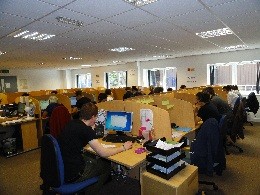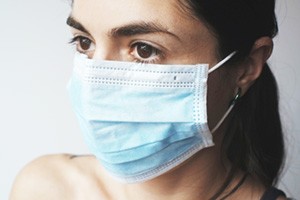Our Contribution During The Covid-19 crisis
24 September 2020When lockdown began, I wrote a short and hopeful article on the role of Market Research in a crisis. We believed we still had a role to play. We have been proud that in fact we have been able to play a role across a wide range of sectors over the last few months or so. As well as much of our existing work, we experienced a strong demand for intelligence to help respond to the crisis.
Health
One of the first studies that came to us explicitly about the pandemic was a commission from the Public Health Wales World Health Organisation Collaborating Centre on Investment for Health and Wellbeing. We were asked to conduct a large-scale survey of the Welsh population, exploring their experiences, perceptions and attitudes towards the Covid-19 pandemic. The project is still ongoing and has involved more than 8,000 interviews by telephone with residents across Wales (approximately 500-600 per week), plus 4,000 follow-up (longitudinal) interviews. The research investigates how people are feeling physically and mentally, their concerns, the impact of Covid-19 on their employment and financial circumstances, and their perceptions about how the government should respond in relation to relaxing lockdown measures.
The research has been fundamental in informing the Welsh public health response to Covid-19, and the results are circulated to the Welsh government on a weekly basis to help shape policy decisions. From a public health perspective, the results have been used to develop a campaign called ‘How are you doing’, which offers tools, advice and signposting for people looking for support with their physical or mental wellbeing, guidance for key workers, financial management and caring responsibilities. The campaign also offers training, such as digital skills, to help people stay connected (particularly the most vulnerable and elderly), and ways in which people can get involved in volunteering and supporting their community. The campaign has been released widely across social media and more traditional channels.
We are also currently working with various NHS organisations, such as Sustainability and Transformation Partnerships, on research to support the recovery from Covid-19.
The objective is to explore the learnings from some of the changes that have taken place in response to Covid-19 with a view to providing a mandate for more permanent changes, for example: shifting a large proportion of outpatient and GP appointments to video consultations; diverting A&E demand to pharmacy and 111; and, other temporary changes to a wide range of services.
We are exploring decision-making and behaviour changes by individuals themselves such as avoiding seeking help, possibly for fear of adding to the burden of the NHS, or for fear of contracting coronavirus.
We are carrying out quantitative and qualitative research with the local population; this includes specific patient cohorts affected by the changes including vulnerable groups and those who face barriers to accessing services as a result of Covid-19. Our methods include online surveys, telephone surveys, videoconference depth interviews and online group discussions.
We also did an online survey for Sheffield Hallam Uni and CeBSAP (Centre for Behavioural Science and Applied Psychology) interviewing 1,000 people to explore how people in the UK were understanding and responding to health messages during the Covid-19 pandemic.
Finally, we continue to work with our clients in the health sector, such as a global manufacturer of hospital beds, to understand how they can most usefully respond. We have been researching health professionals all the way through the pandemic from countries across the world getting real time feedback via remote qualitative research methods, online surveys and communities.
Education
Education is another sector that saw a sharp change in its operation now and likely for the near future.
We have been involved in research to help understand what support/resources teachers and students need to help facilitate remote and blended learning during school closures. We’ve been reflecting on the experience so far as well as planning for September and beyond in the event of local lockdowns and an anticipated widening attainment gap amongst children.
We did some work right at the start for a consortium of well-known UK universities to understand the likelihood of international postgraduate students taking up their places in UK institutions. The value to UK higher education of international students is significant, and the potential drop-off in foreign students could have a major impact on some institutions’ viability moving forward. We spoke to more than 8,000 postgraduate offer holders about their study intentions.
We also continue a lot of our regular work with education clients, usually through the lens of the pandemic, to help inform their strategy for the future.
Utilities
Utilities like energy and water are essential for our society and their work does not stop. So, we have continued with a lot of the work we regularly do for our clients in this sector led by Ali Sims, our utilities expert.
We have been working for two companies in this sector to see if customers are happy to contribute towards social tariffs which provide those struggling financially with support in paying their water bill. Both companies are looking to widen the eligibility criteria of their tariffs to include those financially impacted by Covid-19. As well as asking customers to contribute, both companies also make contributions.
Local Government
We conduct a robust regular survey for Greater Manchester Combined Authority (GMCA), which has a focus on policing and community safety. The survey has also been able to inform plans for transport as lockdown lifts, and other such work areas across Greater Manchester since the lockdown. It’s great to be able to contribute directly to our local city-region.
Even more close to home we are conducting a survey for Cheadle Village (just one mile from me!) to understand the perspective of local residents, businesses and users in order to inform a potential funding bid.
Culture We currently work for a consortium of Department of Digital, Culture, Media and Sport (DCMS) funded galleries and museums. Much of the existing face-to-face work was cancelled and we have moved to more of an online approach.
Clients have been using the existing data to inform their visitor number forecasts, capacity planning and one-way/fixed routes that will be in place for re-opening. Reporting has given an increased focus on domestic and local audiences to help plan marketing for these audiences (given the lower numbers of overseas visitors expected this year).
The new survey now includes questions about how safe visitors feel on site, cleanliness, queuing, social distancing, the information received before the visit and how to improve visitor safety. Weekly benchmarking data is shared with all clients from week one (via portal), which means venues that haven’t opened yet can use data from other sites to inform their own plans, and they have quick insights on what does/doesn’t work and can change their offer as they go.
Retail
For one of our retail clients we’ve added questions to their tracker to assess how shoppers feel that retailers have responded in general and also how safe people feel when shopping in-store (this is asked of any retailer they’ve shopped with on our list – fashion and homeware):
- Thinking about the global Covid-19 pandemic, how would you rate each of these retailers in terms of their response and associated actions?
- Based on social distancing and safety measures that you experienced in-store, how safe would you feel to visit again?
This will help them to assess whether the safety measures they have put in place are perceived to be adequate versus competitors’ (and if not, what else can/should they be doing). The focus of this survey is the in-store shopping experience, so ultimately it’s to help get people shopping on the high street again and driving our economy.
Finally, we conducted a global online survey of investor attitudes for the financial company Calastone. Calastone had revealed a trend of investors buying into the market on the cheap whilst markets were subdued. The survey added more evidence and detail to this trend with risk appetite particularly high amongst younger investors. Renewed optimism in the financial markets and engagement from the young could play an important part in any economic recovery.
Final thoughts...
When we reflect on how we have contributed across such a wide range of sectors we feel extremely proud of all our staff and their work and of the research industry more broadly.
As well as this though we have managed to look after all of our staff during this time and continue to keep them all healthy and with income. This was always a priority for us, just as much as the great work we do.
Human behaviour has changed during the pandemic and we cannot rely on old assumptions. Who would have thought for example that we could lockdown so much of the UK with relatively high levels of compliance? Who would have predicted that so many would still be fearful of relatively simple activities such as shopping? As we live with Covid-19 and move on to a new stage, then we will continue to provide the insight to help organisations and businesses respond successfully to these challenges.













